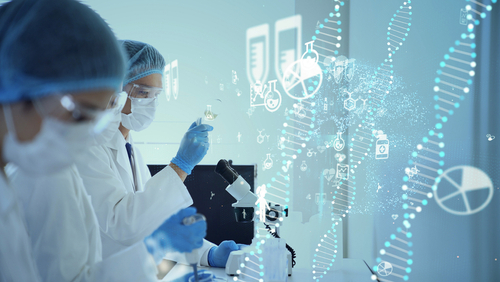Newsletter Signup - Under Article / In Page
"*" indicates required fields
Biocytogen Pharmaceuticals (Beijing) Co., Ltd. has launched the “Nano 100 Project,” which aims to develop fully human nanobody drugs for more than 100 targets.
The project combines Biocytogen’s proprietary fully human nanobody mouse, RenNano, with its high-throughput in vitro and in vivo antibody screening platforms to develop fully human nanobody drugs on a large-scale.
Compared to traditional antibodies, nanobodies have smaller molecular weights and improved tissue penetration ability, which make them effective at infiltrating tumors and crossing blood-brain barriers. Additionally, nanobodies generally have longer CDR3 regions, which enables them to recognize hidden epitopes better.
Due to their simpler structure, nanobodies are more stable and easier to produce and engineer, making them ideal building blocks for complex modalities such as cell therapy, bispecific antibody and engager, multi-specific antibody, antibody drug-conjugate (ADC), and radionuclide antibody-conjugate (RAC).
After several years of work, Biocytogen successfully engineered the RenNano mouse from its fully human antibody mouse, RenMab. RenNano mouse possesses full human heavy chain variable regions and can produce heavy-chain-only antibodies (HCAbs). The variable regions of HCAbs, i.e., nanobodies, do not require in vitro humanization to develop drugs.
Biocytogen said its research has shown that RenNano mouse can generate robust immune responses after immunizations by different antigens. HCAbs generated from the RenNano mouse have highly diverse CDR3 sequences and can recognize many epitopes with nM-level high affinities. In vitro and in vivo experiments have shown that RenNano-derived antibodies have favorable biological functions.
Biocytogen looking to collaborate
The new project aims to develop fully human therapeutic nanobodies against more than 100 targets, including tumor associated antigens (TAAs), GPCRs, immune-checkpoints, cytokines, and factors related to neurological diseases.
Biocytogen is actively seeking collaborations with global pharmaceutical and biotech companies to combine its large-scale nanobody development abilities with collaborators’ expertise in nanobody-related therapeutics, such as cell therapies, bispecific and multi-specific antibodies, ADCs and RACs, to develop novel drugs with first-in-class and/or best-in-class potentials.
“We believe that with the ability to rapidly develop fully human nanobodies against selected targets, the Nano 100 Project will provide our global partners with more diverse and better nanobody building blocks to accelerate the development of novel drugs,” said Yuelei Shen, president and CEO of Biocytogen.
Are you interested in nanotechnology?







